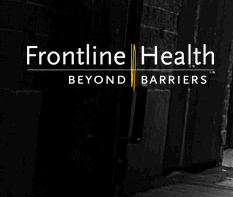Frontline Health Dialogues: Atlantic Canada Dialogue
What will it take to make Canada the best in the world at meeting the healthcare needs of unserved and under-served populations?
The discussion among the Atlantic Canada participants was separated into three topics: building a community of practice around frontline health; attracting and recruiting the next generation of frontline health practitioners; and promoting policy change and increasing public awareness of frontline care.
View list of Atlantic Canada Dialogue Steering Committee members
View list of Atlantic Canada Dialogue participants
Dialogue participants shared several stories of successes they had experienced while building communities of practice in their own fields of work. They felt that perhaps the most exciting potential was that a frontline health community of practice could become a bridge to link frontline and mainstream practice together. The action items generated by participants included:
-
Develop a Frontline Health Association, a formal organization that would prompt health authorities to consider the field’s significance.
-
Create a Frontline Health Fellowship or recognition program that would single out and reward exemplary frontline practitioners for the work they are doing to further frontline healthcare.
-
Create links and improving support to community organizations that are providing many of the services for frontline populations.
-
Develop toolkits to help educate mainstream practitioners, policy makers and others about the frontlines of health.
Attracting and recruiting the next generation of frontline practitioners – whether they are doctors, nurses, social workers or others – is a considerable challenge. Participants were understandably concerned about the shortages in healthcare workers in their respective provinces and felt that educating youth about the potential of careers in frontline health was paramount. Participants recommended taking the following actions:
-
Create a national bank of frontline volunteer opportunities for youth, such as those that are available at frontline clinics, or through student-led volunteer programs.
-
Develop an “early recruitment program” for frontline health practitioners that would target students who have not yet graduated from high school.
-
Develop a frontline health scholarship program, building on the investments made through AstraZeneca’s Frontline Health program to secure sustainable bursaries and endowment funding for training programs in this area.
-
Develop and promote frontline health curriculum, following the examples of schools across Canada that are already doing this with great success. The e-Learning modules that have been developed through the Frontline Health program could be utilized as well
Influencing systems change is one of the biggest challenges facing frontline health practitioners and their supporters. It requires understanding how change happens within these systems and delivering your message accordingly. Dialogue participants shared some success stories and it was evident that while these were daunting tasks, they were not impossible to tackle. A number of recommended actions sprung forth from the discussion:
-
Support, leverage and build on local initiatives, utilize the networks that are in place and connect the dots between policies that do exist.
-
Create new openings, such as a patient navigator or cultural care interpreter, who would bridge the frontline health system and mainstream system and help move people from one to the other.
-
Write a position paper showing a national perspective and creating a sense of organization around the issues encountered on the frontlines of health to help educators, policy makers and others act.
-
Launch an awareness campaign that puts the frontlines of health in front of the broader public.
The third dialogue in the Frontline Health series fuelled the sense of a growing movement that is dedicated to meeting the healthcare needs of unserved and underserved populations. As evidenced around the table, there is a wealth of knowledge and passion among frontline practitioners, and the continued connections created with these meetings bring the reality of access to healthcare for all closer to our grasp. For Atlantic Canada participants, as for participants in Ottawa and Vancouver, it really comes down to the simple fact that “everyone deserves healthcare ...it’s a right.”
Download full report: The Frontline Health Dialogues: Report from the Atlantic Canada Dialogue
AZ9045

